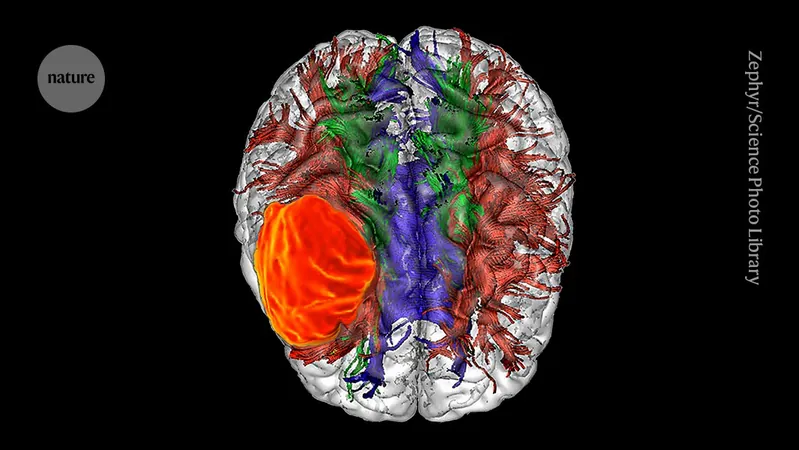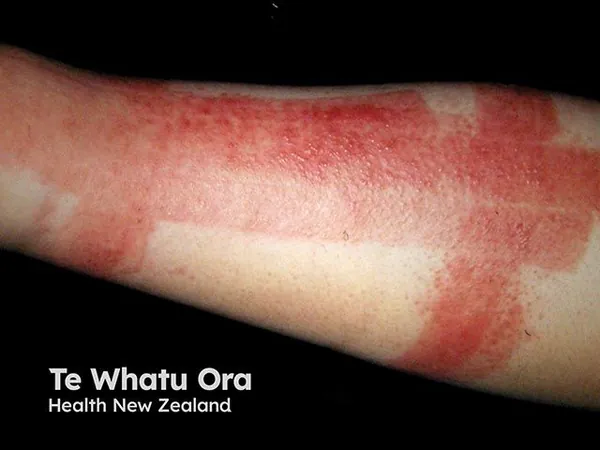
Unlocking the Synergy: How Traditional Chinese Medicine Can Enhance Western Healthcare
2025-08-27
Author: Wei Ling
In Singapore, an intriguing trend is emerging: Traditional Chinese Medicine (TCM) is gaining popularity, and it’s not just among older generations. Recent statistics show that one in five adults in Singapore turn to TCM annually, with a shocking 40% opting to combine it with Western medical practices.
This intriguing blend isn’t limited to traditional treatments like tuina and moxibustion; modern hospitals like Singapore General Hospital and Tan Tock Seng Hospital are now offering acupuncture alongside standard medical care for issues like lower back pain and migraines.
The Ministry of Health's ambitious TCM Integrative Sandbox Initiative is taking this fusion a step further. Since January 2025, public hospitals have been testing 18 evidence-based TCM treatments, exploring their efficacy in areas like post-stroke rehabilitation and managing chemotherapy-related side effects.
Why Are So Many Turning to TCM?
For many older adults, TCM represents a comfortable and culturally familiar approach to healthcare, as noted by senior acupuncturist Adele Lau Wan Hui. But younger people are also joining in, particularly those pursuing wellness. TCM offers a natural alternative with fewer synthetic chemicals, making it appealing to health-conscious individuals.
This preference often stems from fears surrounding the side effects of Western pharmaceuticals. Acupuncture is seen as a less invasive option, aiming to provide relief without the harsh impacts associated with medication.
Does TCM Actually Work?
While TCM may evoke images of herbal concoctions and fragrant ointments, its 3,000-year history also includes modern applications for serious conditions like cancer and stroke. TCM’s holistic approach focuses on the body's energy systems, aiming to correct imbalances that may not respond well to conventional medicine.
Healthcare professionals agree that TCM can complement Western treatments. Dr. Huang Youyi suggests that in areas where conventional medicine falls short, TCM can support natural healing processes, particularly for patients dealing with chronic pain or cancer-related fatigue. Research shows that certain TCM herbal formulas can provide significant relief for those suffering from side effects of treatments like chemotherapy.
The Modern Face of TCM: Tech and Tradition
Gone are the days of lengthy tea brewing sessions; advances in technology have transformed TCM into a more accessible practice. New methods allow for concentrated herbal granules and even laser acupuncture, offering patients convenient and efficient treatment options.
Additionally, emerging technologies such as AI could revolutionize the field, promising enhanced diagnostic tools and personalized treatment plans tailored to individual needs.
Important Considerations for TCM Users
However, anyone considering TCM should proceed with caution. Dr. Quah advises against neglecting professional medical assessments in favor of alternative treatments. It’s crucial to keep your healthcare providers informed about all treatments being pursued, including herbs and supplements.
Interactions between TCM herbs and Western medications can pose serious risks. For example, certain herbs may increase bleeding when combined with anticoagulants, making transparency between practitioners essential.
Ultimately, TCM should serve as a complementary approach, working in harmony with conventional medicine. Whether you’re dealing with chronic pain or simply seeking wellness, the fusion of these two medical paradigms may hold the key to a healthier future.



 Brasil (PT)
Brasil (PT)
 Canada (EN)
Canada (EN)
 Chile (ES)
Chile (ES)
 Česko (CS)
Česko (CS)
 대한민국 (KO)
대한민국 (KO)
 España (ES)
España (ES)
 France (FR)
France (FR)
 Hong Kong (EN)
Hong Kong (EN)
 Italia (IT)
Italia (IT)
 日本 (JA)
日本 (JA)
 Magyarország (HU)
Magyarország (HU)
 Norge (NO)
Norge (NO)
 Polska (PL)
Polska (PL)
 Schweiz (DE)
Schweiz (DE)
 Singapore (EN)
Singapore (EN)
 Sverige (SV)
Sverige (SV)
 Suomi (FI)
Suomi (FI)
 Türkiye (TR)
Türkiye (TR)
 الإمارات العربية المتحدة (AR)
الإمارات العربية المتحدة (AR)